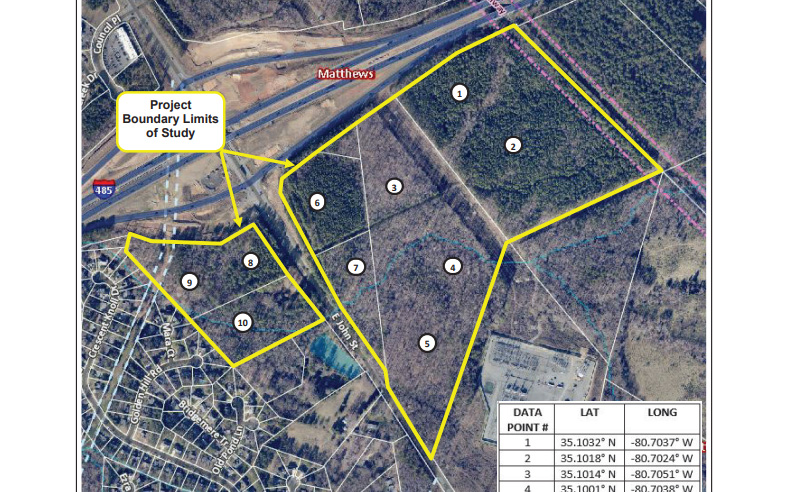A major rezoning effort is underway in Matthews that could pave the way for a large-scale data center project, marking the latest step in Charlotte’s emergence as a southeastern digital hub.
This week, the Matthews Board of Commissioners initiated the rezoning process for a 123-acre property at 1603 E. John St., identified in planning documents as “Project Accelerate.” The effort is being led by East John Master Development LLC, an entity affiliated with Charlotte-based Crosland Southeast.

Plans submitted to the town suggest extensive development, with engineering support from firms like LandDesign and Engineered Land Solutions, both based in Charlotte. Another key partner listed is Matthews DC, LLC.
Rezoning application filed for data center development in Matthews https://t.co/RSq5WoYv7l
— WSOCTV (@wsoctv) July 17, 2025
The next public hearing on the rezoning application is scheduled for September 8, 2025.
If approved, the project would join a growing list of major data center developments across the Charlotte region. Amazon recently announced a $10 billion data center campus in Richmond County, North Carolina. In South Carolina, Cielo Digital Infrastructure is building a $2.1 billion, four-building data center complex in Gaffney, just an hour from Charlotte.
Apple is also expanding its existing facility north of the city as part of a $500 billion national investment targeting artificial intelligence and cloud computing. Meanwhile, Charlotte’s University City is home to the new PowerHouse Charlotte campus, which will add four more data center buildings in two construction phases.
In support of this digital expansion, local entities like Duke Energy and the Joules Accelerator are backing tech startups focused on power efficiency, energy management, and cooling technologies to sustain this level of growth.
Industry experts say Charlotte’s central location and tech-forward economy make it an ideal anchor for the region’s evolving digital corridor. Yet the surge in construction and computing capacity is also placing pressure on regional power grids, raising concerns about long-term energy sustainability.


